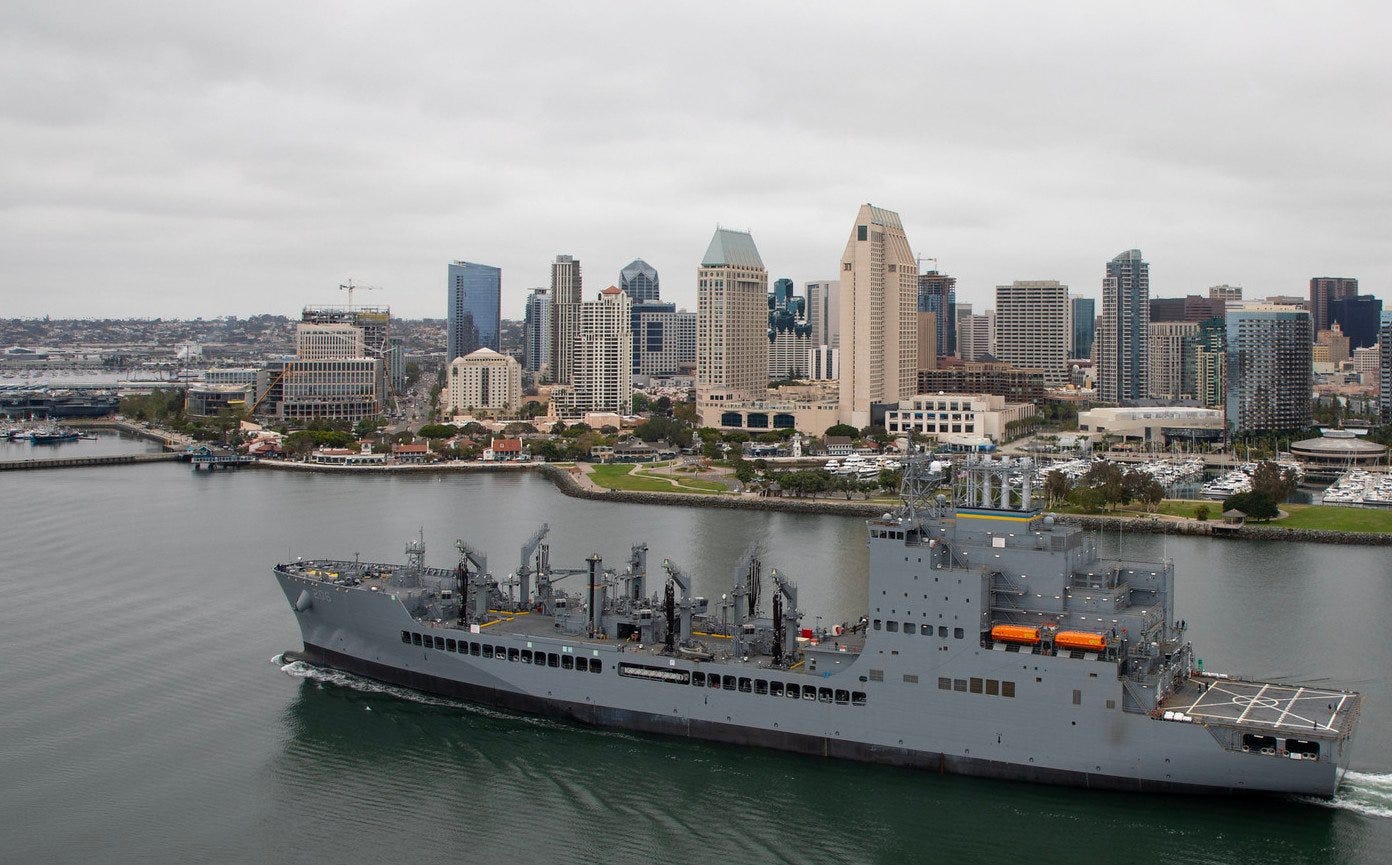Calling Indecency By Its True Name
U.S. Secretary of Defense Pete Hegseth has ordered the renaming of the ship, USNS Harvey Milk, which was named after the famous, proud homosexual. The replenishment oiler was named during the Obama administration in 2016. There is no shortage of articles condemning Hegseth for this move, in which writers laud a so-called “gay icon” while pointing to “our nation’s values” as if sodomy wasn’t a capital crime throughout most of the nation at its founding. They speak esoterically about values, but it would be incredibly difficult to make homosexuality into an “American value” within the framework of an honest history.
Harvey Milk was not a man whom we can remember for an array of public contributions despite a struggle with same-sex attraction. Rather, he is known principally for his attractions, which he acted to normalize and encourage. As is common to the point of stereotype, he was attracted to boys, and had at least one “relationship” with a 16-year-old boy while Milk was in his mid-30s. Pederasty seems inseparable from homosexuality, and tragically, is so often how they reproduce—they cannot beget, so instead they groom. The fact that Milk was murdered does not make his efforts praiseworthy, nor his cause moral.
A common objection to rebranding the ship with a decent name is one of apathy, which is to say, “why bother?” It’s a complacency that comes from how it is easier to resign oneself to how things are than to deal with the logistics and fallout of fixing them. That’s often how the slippery slope effect takes place culturally and politically. It’s a type of normalcy bias that makes people immune from seeing the danger in one’s current circumstances (because catastrophe hasn’t yet happened). We know it is an error because history is full of examples in which decadent societies met their collapse.
As to the “why?,” Pete Hegseth himself gave an answer when he said the rebrand was about “restoring the warrior ethos” among the nation’s military. It certainly makes sense that military men may not appreciate being placed on a ship dedicated to sodomy, nor does such a ship cause America’s enemies to shudder. Sure, it’s just a replenishment tanker, but that doesn’t mean it should be a source of humiliation for the troops.
Hegseth understands culture, so his approach can be interpreted more broadly too. It is appropriate that a nation might contemplate how it identifies itself, communicates its values, and attests to its moral framework. While countries have historically had an ethnic basis for their union, that is less true in the contemporary Western world. So, nations tend to rely solely on shared values for their sense of identity, which is certainly true for America. Said differently, it matters what we believe—both to us and to the rest of the world. Our values define who we are, and the monikers we employ exclaim them.
Ultimately, we are faced with a question: Are there consequences for accepting a moral framework outside of the Christian worldview? If morality is subjective and we are simply sliding in a certain direction because that is what progress looks like, then there’s no problem at all. That is what is commonly asserted. But if a stable, flourishing society requires a coherent and objective moral foundation, then we must act accordingly. And because the Christian worldview is not only coherent but true, it follows that a moral society must rest upon it. Without that foundation, a culture inevitably slides into indecency, then chaos, and finally, oblivion. This is not a pedantic abstraction nor a warning about a possible negative consequence in the remote future. Rather, the ill effects of our moral relativism affect us all—here and now. We need only look around to see that this is true.
We should care about what we are okay with, what we shrug at, because the slippery slope is not a fallacy but a trajectory. Creating and sustaining a moral society takes effort, as does acting in a moral way on a personal level. It is easier to be immoral, so virtuousness must be a choice. So much of our sense of acceptability is determined by what has already been done. We neglectfully accept the things that have been accepted by others at our peril. We must consciously roll back the policies that reflect indecency and immorality. We should never become comfortable with the heralding of perverts who target children, for example.
It matters when the nation promotes immorality—by the projects it funds overseas, by its laws, by the names it gives to its vessels, and by what its leaders proclaim. These things affect who we are as individuals and as a community. We must be clear that an immoral nation cannot remain free; nor can it survive.



I wonder is it's possible to alter the course of the ship, to turn it around? There's so much nonsense going on, not just within this nation, but elsewhere as well.
When people do stand up and speak out, they often find themselves in trouble, or censored (or in jail). I lost my old Twitter account for this very reason, speaking up, and the account was suspended - for simply speaking the truth.
Locally, everyone agrees that it's imperative something be done, but I feel as though a wolf howling into the wind. ... Overall, I feel this 'decay' is deliberately orchestrated by the unelected, for if one follows the money, it traces back to a variety of globalist organizations.
The nonsense going on is a diversion from the real goal - a globalist banking credit system.